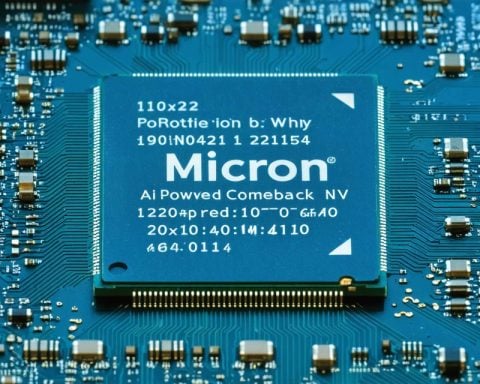5G technology is poised to transform the digital landscape. Malaysia, with its strategic investments and partnerships, is rapidly establishing itself as a leader in this space. As this cutting-edge technology rolls out, smartphone users across the nation are eagerly anticipating the enhancements it promises.
In recent months, Malaysia has made significant strides in expanding its 5G infrastructure. Collaborations between leading telecom companies and the government have focused on developing a robust network capable of supporting a new era of connectivity. These efforts are part of a broader national plan aimed at propelling Malaysia into the forefront of global technology advancement.
For smartphone enthusiasts, the benefits of 5G are multifaceted. Faster download speeds, lower latency, and improved overall network reliability are just the beginning. This advanced connectivity will pave the way for truly seamless streaming, gaming, and virtual reality experiences on handheld devices. As 5G becomes more widespread, users can look forward to a transformative era where smartphones become even more integral to everyday life.
Looking towards the future, Malaysian smartphone users can expect novel applications and opportunities, from smart cities to enhanced e-health services. The potential is immense, promising to impact industries far beyond telecommunications. As Malaysia embraces this technological leap, the coming years will be pivotal in showcasing the full potential of 5G, setting a benchmark for other nations in the region.
The 5G wave is sweeping across Malaysia. With an enthusiastic and forward-looking approach, the nation is on track to realize a new era of connectivity, redefining not just smartphone usage, but an entire digital ecosystem.
Is 5G Technology What Malaysia Needs or is it Just Hype?
Malaysia’s 5G revolution is not only about smartphone enhancements but also hosts a broader narrative encompassing economic and societal transformation. While 5G promises groundbreaking advancements, it also brings complexities that are yet to be fully explored.
How might Malaysian industries change? Beyond transforming telecommunications, 5G has the potential to drastically alter manufacturing, agriculture, and healthcare. Enhanced connectivity can lead to automated, smart factories and precision agriculture through IoT applications, driving growth and efficiency. Healthcare could witness a shift towards telemedicine and remote surgeries, possibly changing patient care experiences. Imagine a scenario where rural areas gain access to specialists through real-time video communications—5G could make that a reality.
Nonetheless, these advantages are not without controversy. One concern is the digital divide—the gap between those who have access to digital technologies and those who do not. Will 5G exacerbate this issue in Malaysia, leaving remote communities further behind? Moreover, the costs involved in developing such a wide-reaching infrastructure could be a burden on public funds and eventually be transferred to consumers in the form of higher service fees.
Are there health concerns? As with all new technologies, 5G faces scrutiny regarding possible radiation effects, though studies have yet to provide conclusive results. This uncertainty leaves room for public debate and skepticism, a hurdle Malaysia must address in its tech-forward journey.
Despite challenges, Malaysia’s initiative to spearhead 5G might not only uplift its industries but also signal a new status as a tech innovator in Asia. For a more global perspective, consider visiting Qualcomm and Huawei for further insights into how the technology is being implemented worldwide.























